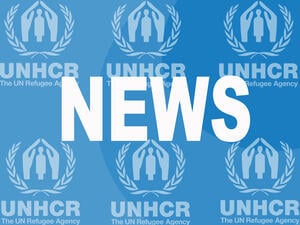UNHCR Responds to Allegations of Fraudulent UNHCR cards
UNHCR Responds to Allegations of Fraudulent UNHCR cards

UNHCR Malaysia News
Kuala Lumpur, 7 August 2020 – UNHCR, the UN Refugee Agency is aware of allegations of fake documents which are not produced by the Agency that are in circulation in some migrant and refugee communities.
As part of its continued efforts to combat identity fraud and card counterfeiting, in consultation with Malaysian authorities, UNHCR has made significant investments in further tightening its procedures and ensuring the integrity of its documentation.
According to UNHCR, for several years now, its cards have enhanced security features, including 3D holograms, bar codes, and a ‘Secure Quick Response’ (SQR) code, supported by biometric data collection at the UNHCR office, which includes iris and 10-finger scanning.
The authenticity of the card can also be verified through the UNHCR Verify-MY App which allows law enforcement officials and others engaged in UNHCR’s protection and assistance work to easily verify the authenticity of the card. UNHCR works closely with law enforcement authorities on a regular basis on matters related to refugee protection and documentation, including verifying refugee documents through its Office or through the Verify-My App.
All these efforts by UNHCR aim to better protect refugees as well as address the Government’s concerns around security.
UNHCR added that its documentation recognizes a refugee and asylum-seeker’s need for international protection. UNHCR has been working closely with law enforcement, police, and immigration to elaborate this concept in international law, and the meaning of the documentation that refugees receive from UNHCR, as part of its Mandate responsibility, which was established by the UN General Assembly in 1950. This has yielded significant protection from uncalled for immigration arrest.
The Agency’s documentation helps protect refugees and asylum-seekers from deportation to their country of origin where their freedom or lives may be at risk. It also protects them from being deported to any other country from where they would be at risk of being returned to their country of origin. This is known as the customary international law principle of non-refoulement, which is binding for all states, regardless of whether or not they have signed the 1951 Convention relating to the Status of Refugees.
UNHCR document-holders are also able to obtain a 50% discount off foreigners’ rates at public healthcare facilities.



